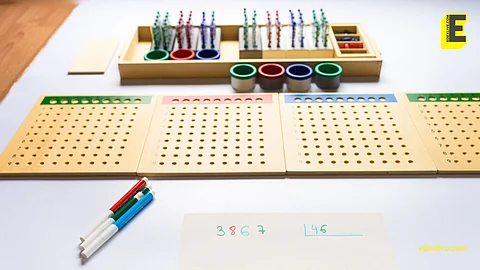How are innovative learning models transforming alternative approaches to education?
India comprises one of the largest education systems worldwide. According to a Brickwork report, the nation is home to nearly 1.49 million schools, 9.5 million teachers, and 265 million students. Given the scale of this system, the education sector must evolve to meet the needs of a digital-first, skills-driven world.
Traditional classroom models, designed for the industrial age, often fall short of equipping students with the competencies required for today's dynamic workforce. As industries transform rapidly, so too must our approach to learning.
The rise of innovative learning models, powered by technological progress and the need for tailored education, has redefined how students and professionals acquire knowledge. The question is no longer whether to embrace these alternative models but how to integrate them effectively into mainstream education.
Personalised learning: Tailoring education to individual needs
Personalised learning customises education down to the smallest detail, taking into account factors such as individual pace, learning style, and interest. Educational platforms now track student progress in real-time and offer tailored content with the power of data.
This reduces the pressure of keeping up with a fixed curriculum while ensuring that students who need additional support receive it without delay. This approach is commonly incorporated by up-and-coming Ed-tech platforms which also employ AI, machine learning and other adaptive technologies to refine the learning experience.
Competency-based learning: Moving beyond traditional timelines
Competency-based learning (CBL) goes beyond time-based learning and emphasizes skill mastery. It allows students to progress when they display adeptness, rather than restraining them to a fixed schedule. For those who may find it tough to grasp a particular concept, CBL offers avenues to reread materials, ensuring that no learner is left behind.
For instance, in a biology course, a student who understands photosynthesis can move on to studying cellular respiration. However, if a student is struggling with the concept of cell division, they can receive specified lessons to improve their know-how before progressing further. This model prepares students for real-world challenges, where skills matter more than time spent in a classroom.
Blended learning: Combining traditional and digital education
Blended learning models have proved to be a game-changer, combining conventional classroom instruction with digital resources. This hybrid approach is beneficial for students in the remote and rural areas with limited access to educational infrastructure. Recognising its potential, the University Grants Commission (UGC) unveiled a draft in the recent past, recommending up to 40% online teaching mode for any course in higher education in India.
This model has also benefited working professionals who can now balance their education with career and personal commitments. Such flexibility empowers educators as well in addressing the requirements of diverse student groups, thus enhancing their learning outcomes.
Project-based and experiential learning: Learning by doing
Project-based and experiential learning allow students to engage in pertinent projects and apply their theoretical understanding. While doing so, they expand their know-how of academic content, attaining valuable experiences in problem-solving, collaboration, and communication.
This hands-on method aids them in developing practical skills which are a prerequisite to success in the long-term.
Gamification: Making learning interactive
Gamification integrates game elements such as rewards, leaderboards, and progress tracking for enhancing motivation and learner engagement. This approach promotes active participation, boosts retention and heightens their sense of accomplishment. Gamification has been effective in making complex subjects easy, allowing individuals to celebrate small wins along the learning journey.
Language learning apps are a classic example of this approach where gamification is used to keep learners engaged while reinforcing new words and phrases.
Social and collaborative learning: Encouraging peer interaction
Social and collaborative learning nurtures collaboration, social skills, communication — all of which are necessary drivers of success in every domain. It inspires learners to converge, both in classrooms and online platforms, facilitating peer-to-peer learning. It further assists them in appreciating various perspectives, expanding their horizons, and preparing them for a globalised world where cooperation is significant.
To exemplify, in a history project on the fall of the Roman Empire, students can collectively research political, economic, and cultural factors, then share insights to build a comprehensive understanding.
The role of AI and Data Analytics
Many innovative learning models rely on data-led analytics and AI to enhance student performance. A study by McKinsey & Company emphasises that AI-led education technologies have the potential to mitigate the achievement gap between high and low-performing students by up to 20%. AI can analyse student assessment results, grades, attendance records, and engagement patterns to provide actionable insights.
The road ahead: Opportunities and challenges
Innovative learning models are altering the course of education in the current times by offering alternative and engaging approaches to learning. However, challenges such as technological hurdles, inadequate teacher training, and resistance to change must be addressed to ensure their widespread adoption. The success of these models will depend on their ability to scale and integrate seamlessly into India's vast education ecosystem.
For learners, educators and business leaders, investing in consistent learning and staying open to newer methodologies will be vital to navigating this new era. As technology and pedagogy continue to evolve, the education system must remain agile enough to ensure that learning remains accessible, relevant, and impactful.
(Firoz Thairinil is the Founder and Chief Executive Officer of UniAthena. Views expressed are his own.)


